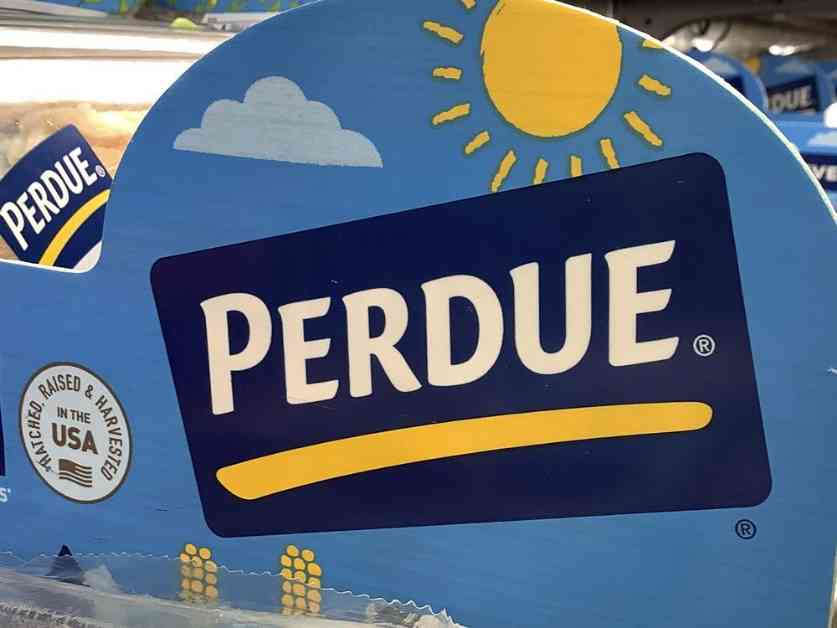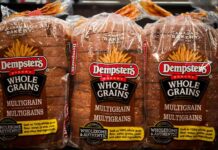Perdue Chicken Nugget Recall: 167,000 Pounds Due to Metal Wire Contamination
Perdue Foods is recalling more than 167,000 pounds of frozen chicken nuggets and tenders after some customers reported finding metal wire embedded in the products. The recall covers select lots of three products: Perdue Breaded Chicken Tenders, Butcher Box Organic Chicken Breast Nuggets, and Perdue Simply Smart Organics Breaded Chicken Breast Nuggets. The recall was initiated after receiving customer complaints about foreign material contamination.
Foreign Material Contamination in Food Products
Foreign object contamination is one of the top reasons for food recalls in the U.S. today. This issue poses a serious health risk to consumers as it can lead to injuries or adverse reactions when foreign materials are ingested accidentally. In the case of Perdue’s chicken nuggets and tenders, the presence of metal wire in the products raised concerns about the safety and quality of the food items.
Perdue’s Response to the Contamination Issue
Perdue Foods, in collaboration with the U.S. Agriculture Department’s Food Safety and Inspection Service (FSIS), identified that approximately 167,171 pounds (75,827 kilograms) of the affected products may be contaminated with a very thin strand of metal wire. The company took immediate action to issue a voluntary recall of the impacted batches to ensure consumer safety and prevent any potential harm.
Jeff Shaw, Perdue’s senior vice president of food safety and quality, stated that the metal wire was inadvertently introduced into the manufacturing process and was found in a limited number of consumer packages. As a precautionary measure, Perdue decided to recall all affected packages to avoid any risks associated with the foreign material contamination. There have been no confirmed injuries or adverse reactions reported from consuming the recalled products to date.
Identification and Removal of Recalled Products
Consumers who have purchased the recalled Perdue chicken tenders and nuggets are urged to check their freezers for the affected products. The recalled items can be identified by specific product codes and a best if used by date of March 23, 2025, along with the establishment number “P-33944” on the back of the package. If consumers have the recalled products, they are advised to either dispose of them or return them to the place of purchase for a full refund.
FSIS and Perdue are concerned that some of the contaminated products may still be in consumers’ freezers, potentially posing a health risk if consumed. It is essential for individuals to check their frozen food inventory and take appropriate action if they have any of the recalled chicken products in their possession.
Previous Cases of Foreign Object Contamination in Food
The incident involving Perdue’s chicken nuggets and tenders is not an isolated case of foreign material contamination in food products. In November of last year, Tyson Foods recalled nearly 30,000 pounds (13,600 kilograms) of chicken nuggets due to the presence of metal pieces in the dinosaur-shaped products. Instances of plastic fragments, rocks, bits of insects, and other extraneous materials finding their way into packaged goods have led to recalls across the food industry.
Food Safety Measures and Consumer Protection
Ensuring the safety and quality of food products is a shared responsibility between food manufacturers, regulatory agencies, and consumers. Companies like Perdue play a crucial role in upholding food safety standards and promptly addressing any issues that may compromise the integrity of their products. By initiating recalls and offering refunds to affected consumers, Perdue demonstrates its commitment to consumer protection and product quality.
In Conclusion, the recall of 167,000 pounds of Perdue chicken nuggets and tenders highlights the importance of vigilance in food safety practices. Consumers should always be cautious when purchasing and consuming packaged foods to avoid potential hazards such as foreign material contamination. By staying informed and following recall notices, individuals can protect themselves and their families from unnecessary health risks associated with contaminated food products.






















